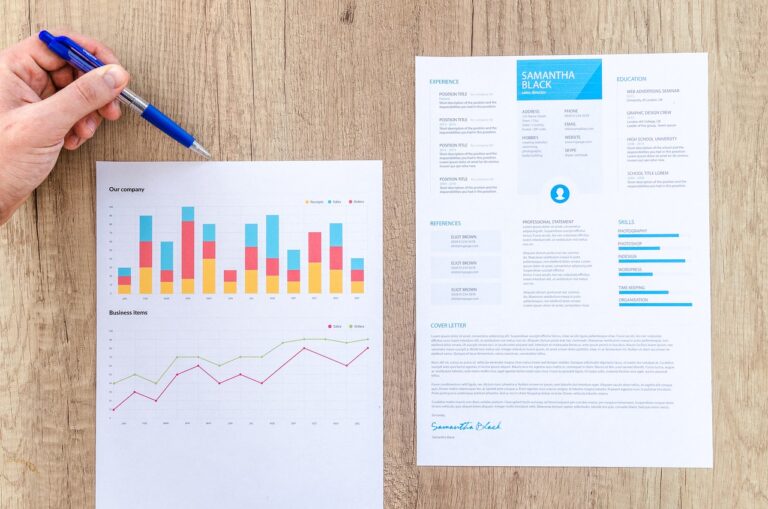The Role of Predictive Analytics in Optimizing Energy Consumption for Electrical Equipment
lotusbook 365, play99exch, all panel mahadev: Predictive analytics plays a crucial role in optimizing energy consumption for electrical equipment. With the rise of smart technology and the Internet of Things (IoT), more businesses and organizations are turning to data-driven solutions to monitor and manage their energy usage efficiently.
What is Predictive Analytics?
Predictive analytics involves using historical data, statistical algorithms, and machine learning techniques to predict future outcomes. In the context of energy consumption for electrical equipment, predictive analytics can help identify patterns, trends, and anomalies in energy usage to optimize performance and reduce costs.
How Does Predictive Analytics Work?
Predictive analytics works by collecting and analyzing data from sensors and monitoring devices installed on electrical equipment. This data is then used to create models that can predict when equipment is likely to fail, when energy consumption will peak, and how to optimize energy usage based on historical patterns.
Benefits of Using Predictive Analytics for Energy Consumption
1. Cost Reduction: By predicting when equipment will fail and optimizing energy usage, businesses can reduce maintenance costs and save on energy bills.
2. Improved Efficiency: Predictive analytics can help businesses identify inefficiencies in their energy usage and make data-driven decisions to improve performance.
3. Preventive Maintenance: By predicting when equipment is likely to fail, businesses can schedule maintenance in advance, reducing downtime and preventing costly repairs.
4. Sustainability: Optimizing energy consumption not only saves money but also reduces the carbon footprint of businesses, contributing to a more sustainable future.
Challenges of Implementing Predictive Analytics for Energy Consumption
While predictive analytics offers many benefits, there are some challenges to consider when implementing these solutions:
1. Data Quality: Predictive analytics relies on high-quality data to make accurate predictions. Ensuring data accuracy and consistency can be a challenge for businesses.
2. Integration: Integrating predictive analytics tools with existing systems and equipment can be complex and require specialized expertise.
3. Scalability: As businesses grow and expand, scaling predictive analytics solutions to meet the increased demand can be a challenge.
4. Security: Protecting sensitive data collected by predictive analytics tools from cyber threats and unauthorized access is crucial for businesses.
How Businesses Can Use Predictive Analytics for Energy Consumption
Businesses can use predictive analytics for energy consumption in various ways, including:
1. Equipment Monitoring: Monitoring electrical equipment in real-time to detect anomalies and predict failures before they occur.
2. Energy Forecasting: Using historical data to forecast energy consumption patterns and optimize usage to reduce costs.
3. Demand Response: Adjusting energy consumption in response to peak demand periods to avoid excess costs and improve efficiency.
4. Asset Management: Predicting when equipment is likely to fail and scheduling maintenance proactively to prevent costly downtime.
5. Performance Optimization: Using predictive analytics to identify areas for improvement in energy efficiency and take action to optimize performance.
FAQs
Q: How can businesses get started with predictive analytics for energy consumption?
A: Businesses can start by collecting and analyzing data from sensors and monitoring devices installed on electrical equipment. They can then use predictive analytics tools to create models and make data-driven decisions to optimize energy usage.
Q: What are some common predictive analytics tools used for energy consumption optimization?
A: Some common predictive analytics tools used for energy consumption optimization include machine learning algorithms, statistical modeling software, and IoT platforms.
Q: How can businesses ensure data security when using predictive analytics for energy consumption?
A: Businesses can ensure data security by implementing strict access controls, encrypting sensitive data, and regularly monitoring their systems for any signs of unauthorized access.
In conclusion, predictive analytics plays a vital role in optimizing energy consumption for electrical equipment. By harnessing the power of data-driven solutions, businesses can reduce costs, improve efficiency, and contribute to a more sustainable future. As technology continues to evolve, predictive analytics will play an increasingly critical role in helping businesses manage their energy usage effectively.







